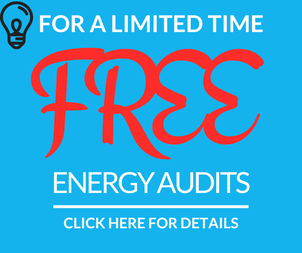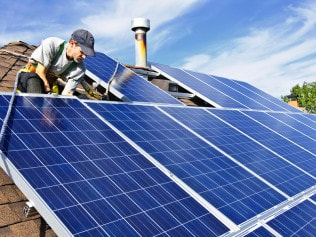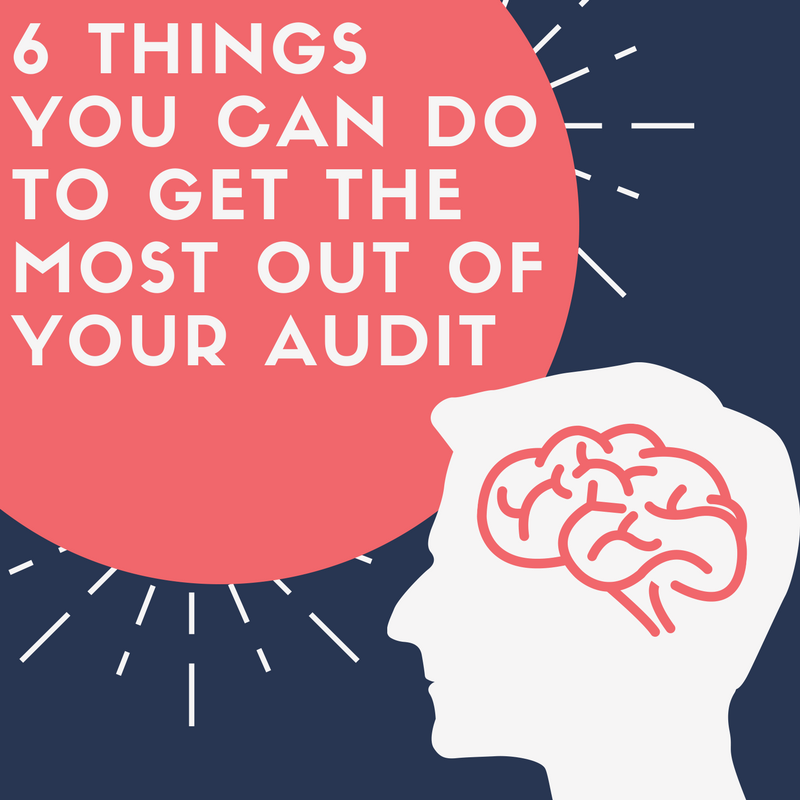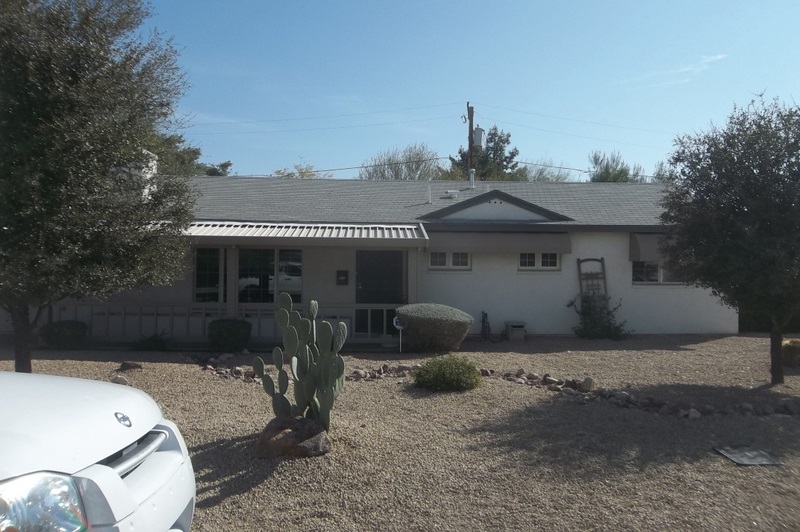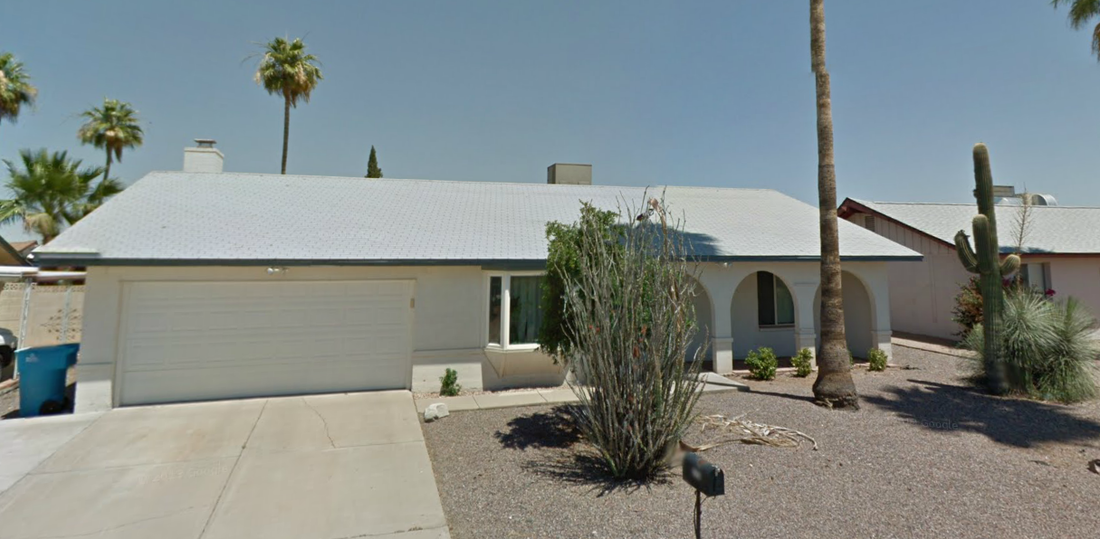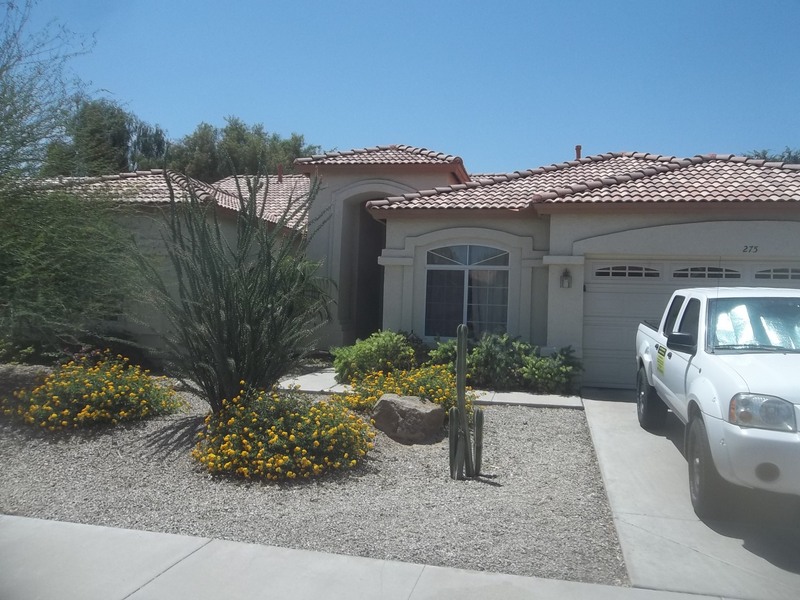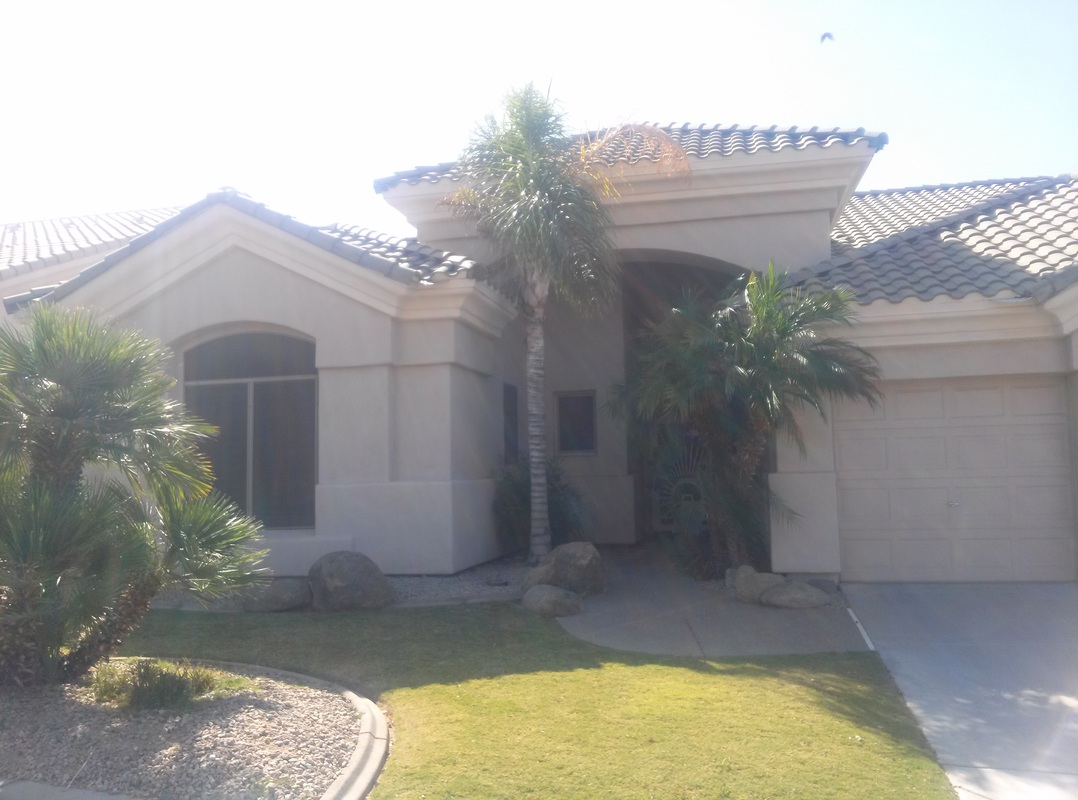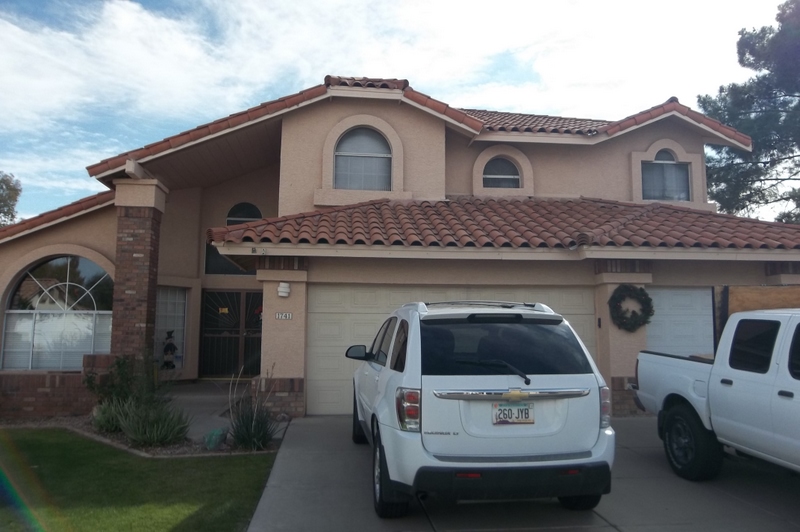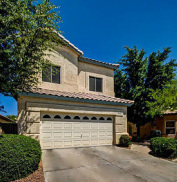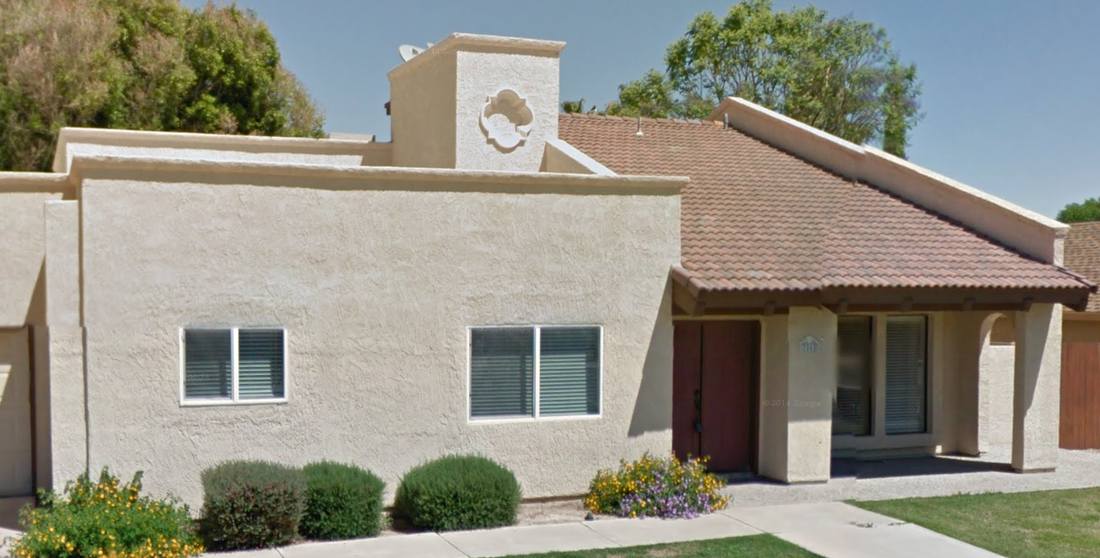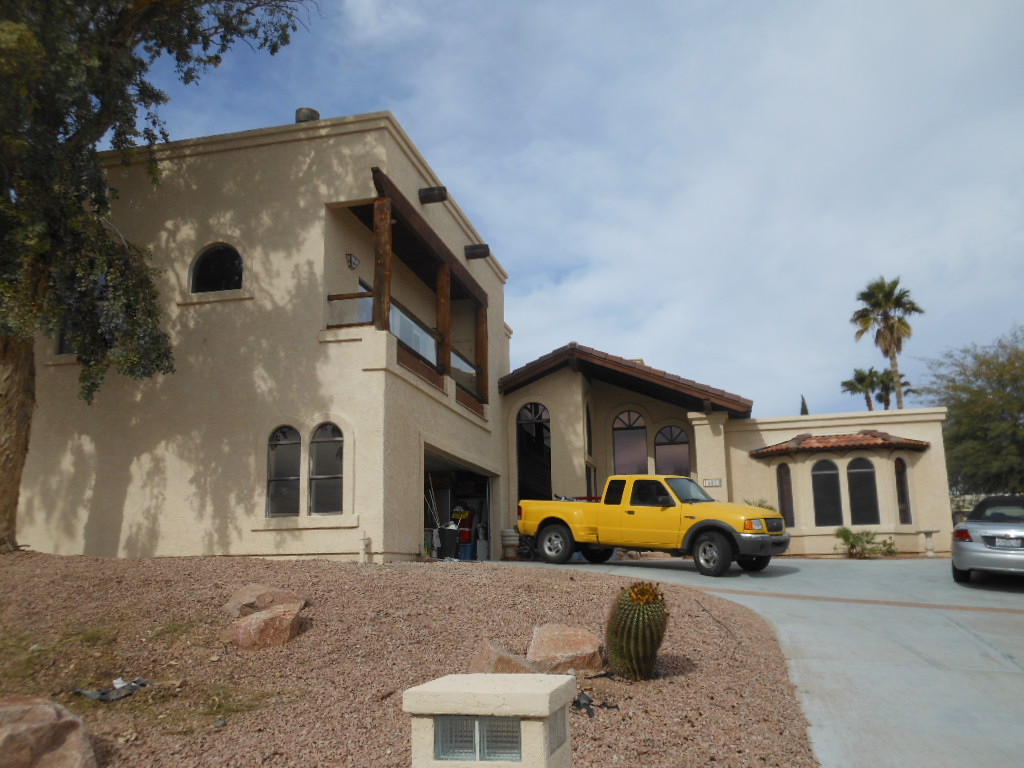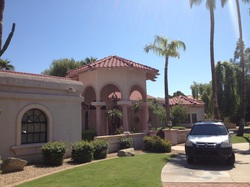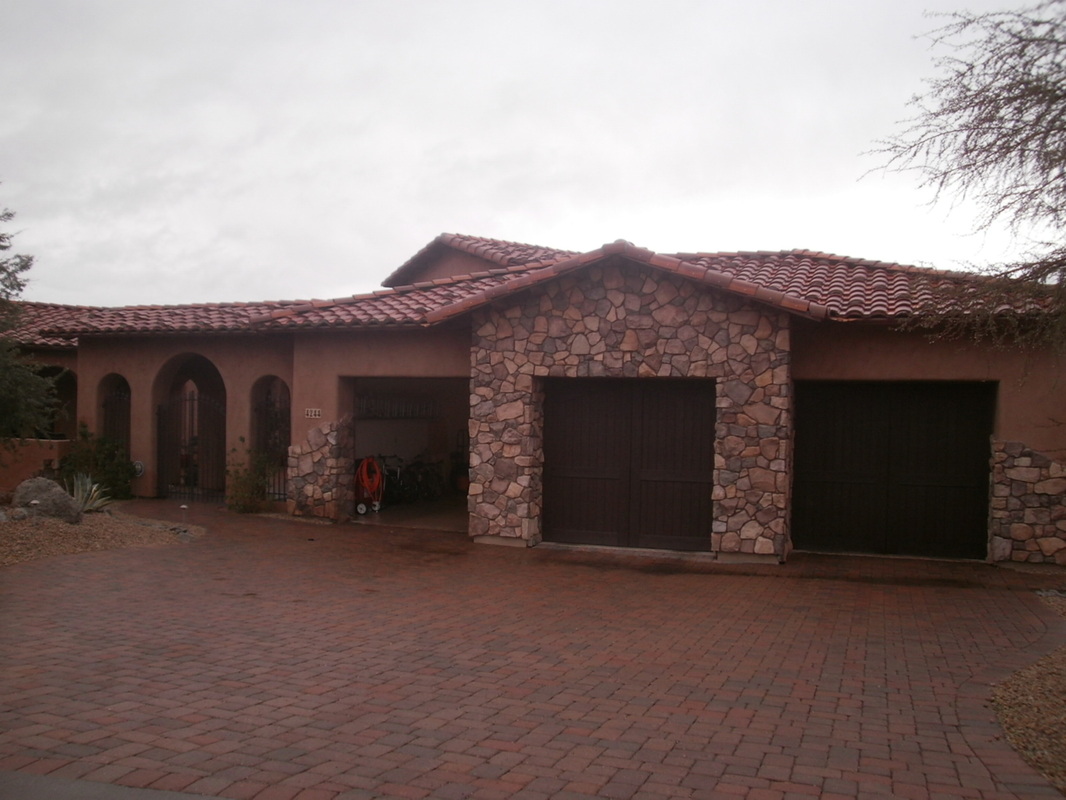|
Kiana Mays There is no doubt that solar is a reliable and readily available source of energy in sunny Arizona. Installing solar in your home can have a positive impact on the environment and dramatically lower your monthly utility bill. It's a great investment for its low maintenance costs and high returns. For instance, a homeowner can expect a 10 year payback and a 10.6% Investment Return for a 5-kW system 1. Owned solar panels can add 4 to 6 percent to the value of a home 3. Real Estate agents agree that homebuyers are increasingly looking for solar panels in the same way they look for granite countertops or wood floors 3. Adding solar to your home can save you a lot on your utility bill and potentially earn you money through feed-in tariffs annually. However, we all know that purchasing photovoltaics can have a high upfront cost anywhere between $18,000 and $29,000 2. While the initial investment to purchase solar panels can be high, there are different payment structures and tax incentives that can greatly lower these costs. Incentives to Installing Home Solar Panels
When installing your home solar panels, you can expect absolutely zero sales tax! Under the Solar Equipment Sales Tax Exemption, you are free from the burden of any Arizona solar tax. Likewise, under the Energy Equipment Property Tax Exemption, the value added to your property from installing solar will not add to your property tax 2. Arizona also offers a Residential Solar Energy Credit where the resident can get back 25% of the cost of the system through tax credits at a maximum of $1000. If the credit exceeds the taxes you owe, you are able to carry it over for up to five years 1. In addition to state tax credit savings, there are also benefits on a federal level. Under the Federal Investment Tax Credit (ITC), a purchaser of a home solar energy system is eligible to receive a 30% tax deduction from the cost of their solar energy system after state rebates. To give you an idea of the kinds of savings you could get from this, in 2017 the average solar shopper saved over $5,000 on costs going solar from the ITC alone 4. The ITC isn't going to last forever. in 2020, the tax credit will reduce to 26%, in 2021 it will reduce to 22%, and by 2022 there will only be a 10% credit remaining for commercial users only 4. This is all the more reason not to wait to install solar panels on your home. Alternatives to owning solar panels If you are looking for the benefits of solar but are not ready to invest in a solar energy system of your own, solar leasing and PPAs are both great options. Roughly 75% of solar installations in APS territory are leases, making it the current most popular choice for Arizona solar buyers 2. With a solar lease, you agree to pay a fixed monthly “rent” or lease payment, which is calculated using the estimated amount of electricity the system will produce, in exchange for the right to use the solar energy system. With solar PPAs, the homeowner agrees to purchase the power generated by the system at a set per-kWh price as opposed to paying "rent" to the solar panel system. Some of the benefits of solar leases and PPAs are that you can expect 10-30% savings over the cost of your utility bill 4. The leasing company is also responsible for maintaining and handling the panels and interactions between the utility company- making little-to-no work for you! Additionally, there are many options that have $0-down agreements, so you can be at ease. When you sign a solar lease or PPA, it's important to note that you do not own the solar panel on your property. Under these agreements, you will not receive tax incentives. Additionally, a leased solar energy system can actually detract 3 to 8 percent from the value of a Phoenix-metro home 3. When you go to sell your home with a leased solar energy system, you are selling the lease with the home. This is often seen as unattractive to prospecting home buyers, despite the projected savings in utility bills 3. A solar lease will last on average 20 years 2. At the end of the lease the homeowner can resign their lease, give back the system, or choose to purchase the system from the company. So if you plan on committing to your solar energy system in the long run, choosing a lease or PPA may be a feasible and effective option for you!
3 Comments
Energy audits are useful ways to uncover why a bedroom is always hot in the summer or why your energy bills are so high, but there is a hidden trove of useful information homeowners can uncover during their home energy audit that isn’t widely known. If you are wondering how much does it cost to have an energy audit and what do we do during an audit, here are the top 6 ways to get the most out of your energy audit from an experience Phoenix energy auditor.
1. Ask about your thermostat settings Your energy auditor gets to see hundred of energy bills every year for homeowners with lifestyles all over the board. If you feel your energy bill is too high 1 quick thing you can do to lower your bill during an energy audit is to simply ask your auditor about whether you’re on the best rate plan for your lifestyle and whether there are better, more cost-effective alternatives for you. Often times there are hidden savings to be had a no cost to you by simply switching rate plans or installing a smart thermostat that automatically raises itself when you leave the house. 2. Follow the energy auditor There’s no better way to learn than to be with the energy auditor and see how they do what they do. No, it's not being intrusive and we actually like when homeowners are with us because we get to talk about what we love doing. Being involved in an energy audit will help you better understand why we are recommending certain upgrades and the causes of high energy bills, hot rooms or dust. You can even feel where and how much air is leaking around outlets, windows and doors, pocket doors and exhaust fans. Our energy auditors look at solving your home's hot rooms and high energy bills as a fun puzzle. We perform a bunch of tests on the home which paints a clear picture of what are causing any issues and what is not at fault. It's not guessing or a visual inspection, which is why we attract more technical auditors than sales minded auditors. 3. Prepare 12 months of energy bills for them For an energy audit to become as successful as it can get, the auditors in place require all the relevant information about your home that they can get and 12 months of energy bills is optimal for an auditor to paint a vivid picture of your home and find what home improvement solutions suits it best. 4. Ask about other recommendations they have that they do not sell If there’s one thing in this world we can assure you of, it’s that asking never hurts! You can find out about other recommendations and improvements the auditor can suggest simply by asking. Your questions could trigger the auditor to recall a home improvement solution that he/she didn’t think about because it's not included in a typical energy audit. 5. Ask to use the IR camera while the blower door is running You might think it’s strange for us to recommend you to have the blower door is running when the IR camera is being used. However, there is a good reason for this and it is that the IR camera alone only shows heat gain and the differences in temperature in a specific area but, when the blower is also running it allows the IR camera to also detect air leakage pathways and the source of the leakage. This is a great visual tool to show leakage pathways that are more than just a number. 6. Ask what the energy model doesn’t cover Unfortunately, our modeling software is not able to model all of our recommendations like adding a return, jump-ducts or airflow balancing. This means that while you will still enjoy the benefits of the improvements, the model won’t be able to predict how much you are saving. This is where your energy auditor's experience comes into play to help find the right efficiency package for your needs. |
Sign Up For Your Home Energy AuditFIND YOUR HOME TYPERanch HomesSingle Story, Spec HomesTwo Story, Spec HomesTri-Level HomesPre-1990 Custom HomePost-1990 Custom HomeDon't See Your Home? Find Your City Below!Archives
April 2024
Copyright Notice©2009 – 2023
All Rights Reserved |

